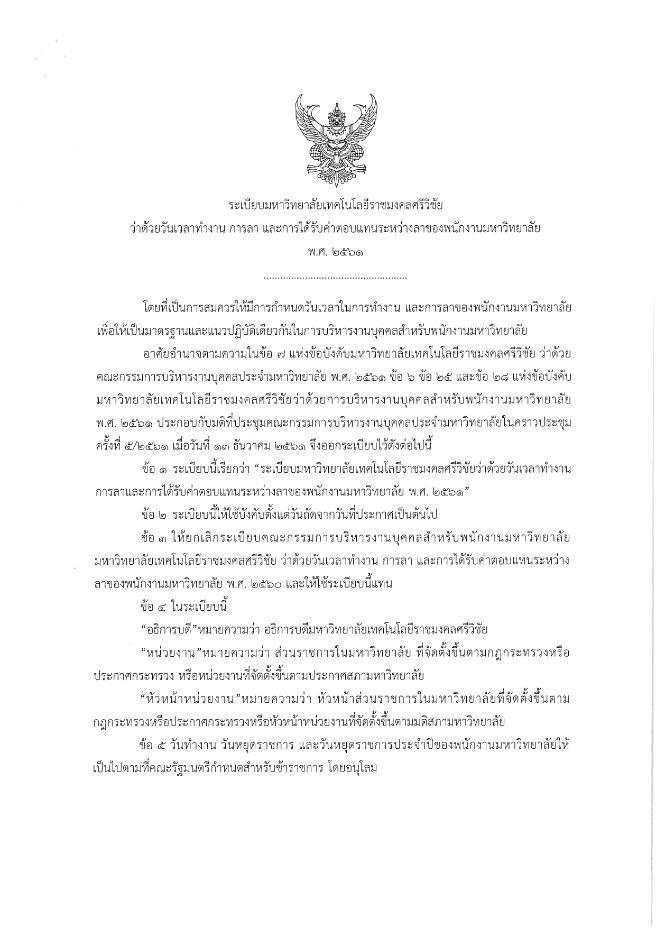Reporters: Asst.Prof. Saowanee Chaipech, Dr. kittichon Utaynapun, Asst.Prof. Sudanai Krualee, Mr. Ugrit Chammari
Evidence Date: during 2023 Jan-Dec
Related SDGs:

Related Indicators: 12.2.5
Details:
The announcement from Rajamangala University of Technology Srivijaya on sustainable consumption and production since A.D.2022.
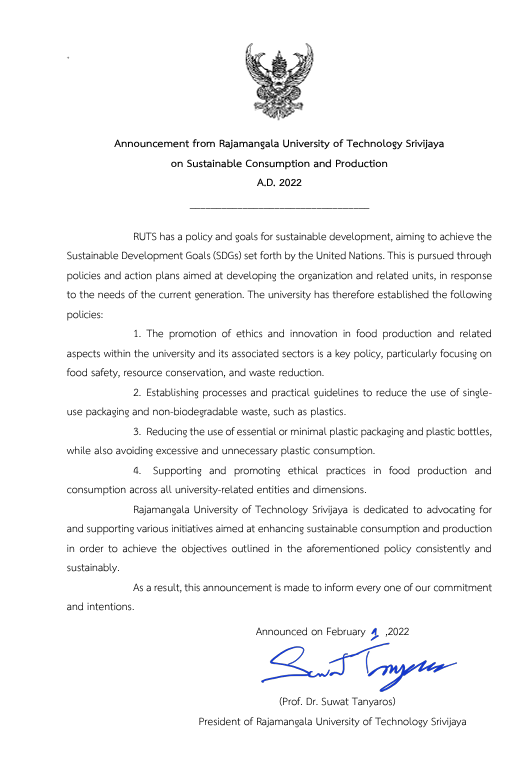 |
Evidence I : Activities for a Green University
Many provinces in Thailand, including Nakhon Si Thammarat, face significant waste problems that affect the lives and well-being of their residents. In response, Rajamangala University of Technology Srivijaya has adopted a green university policy, encouraging all staff to be mindful of conservation and environmental protection in their activities and operations. For example:
- Case 1: The university encourages the use of fabric bags instead of plastic bags for various activities, including teaching, student guidance, and counseling.
- Case 2: In academic service initiatives across various fields, such as culinary arts training and knowledge-sharing on cocoa processing technology and innovation for local cocoa-processing community enterprises, materials used in these training sessions are made from stainless steel. Stainless steel is durable and long-lasting, helping to reduce waste and costs by minimizing reliance on disposable plastic and paper products.
These efforts reflect the university’s commitment to reducing plastic use and fostering sustainable practices within the campus and community.
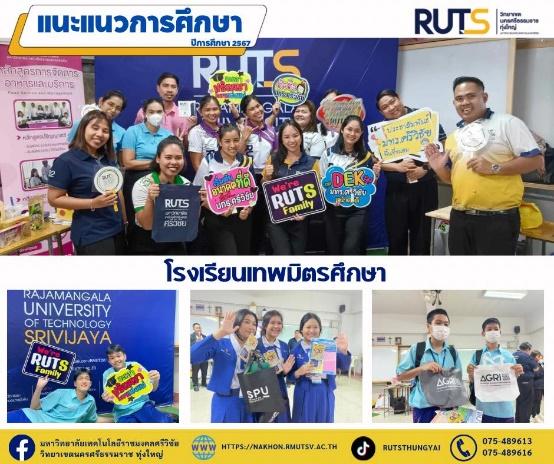 |
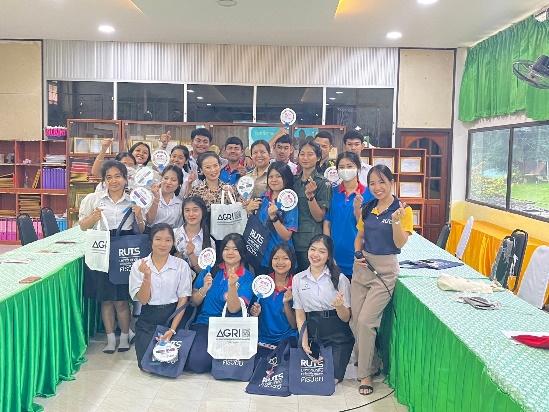 |
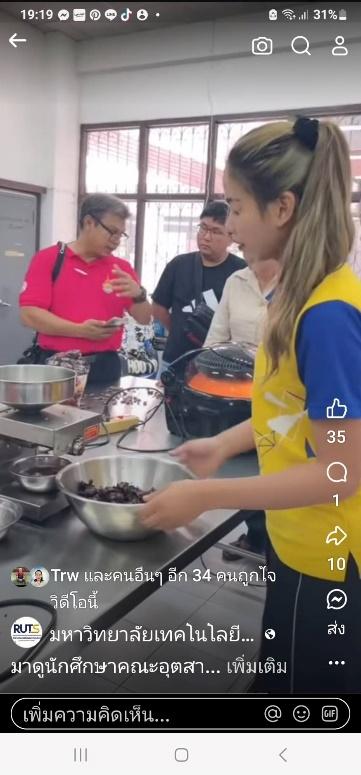 |
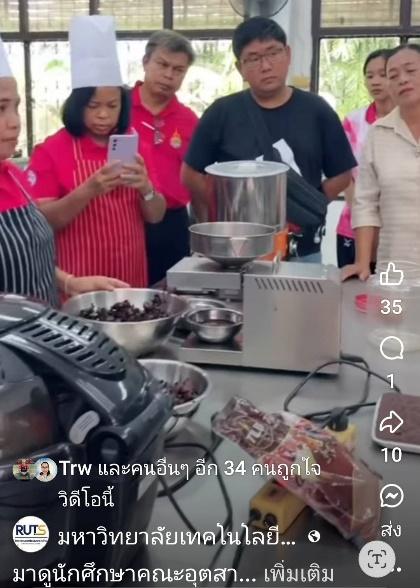 |
https://www.facebook.com/share/p/KN7zob3Ujf5A1TkA
https://www.facebook.com/share/p/ppMZCY6eyvkTh7o7
https://www.facebook.com/share/r/6Lmrd19wKKmamMyk
Evidence II
RUTS is dedicated to reducing plastic use in all forms, particularly by replacing a plastic bottle with plastic bottle fighting fish tank. These plastic tanks can serve as useful things for various containers and also align with the principles of sustainable development. By minimizing plastic usage, RUTS has an initiative that helps reduce the environmental impact of plastic waste, conserves resources, and promotes the recycling and reuse of materials. The university’s staff actively engage in these efforts and encourage relevant units to participate, fostering a culture of sustainability that enhances resource efficiency and promotes environmental awareness throughout the community. Through these actions, RUTS not only reduces its ecological footprint but also sets a positive example for students and external partners in the pursuit of a more sustainable future.
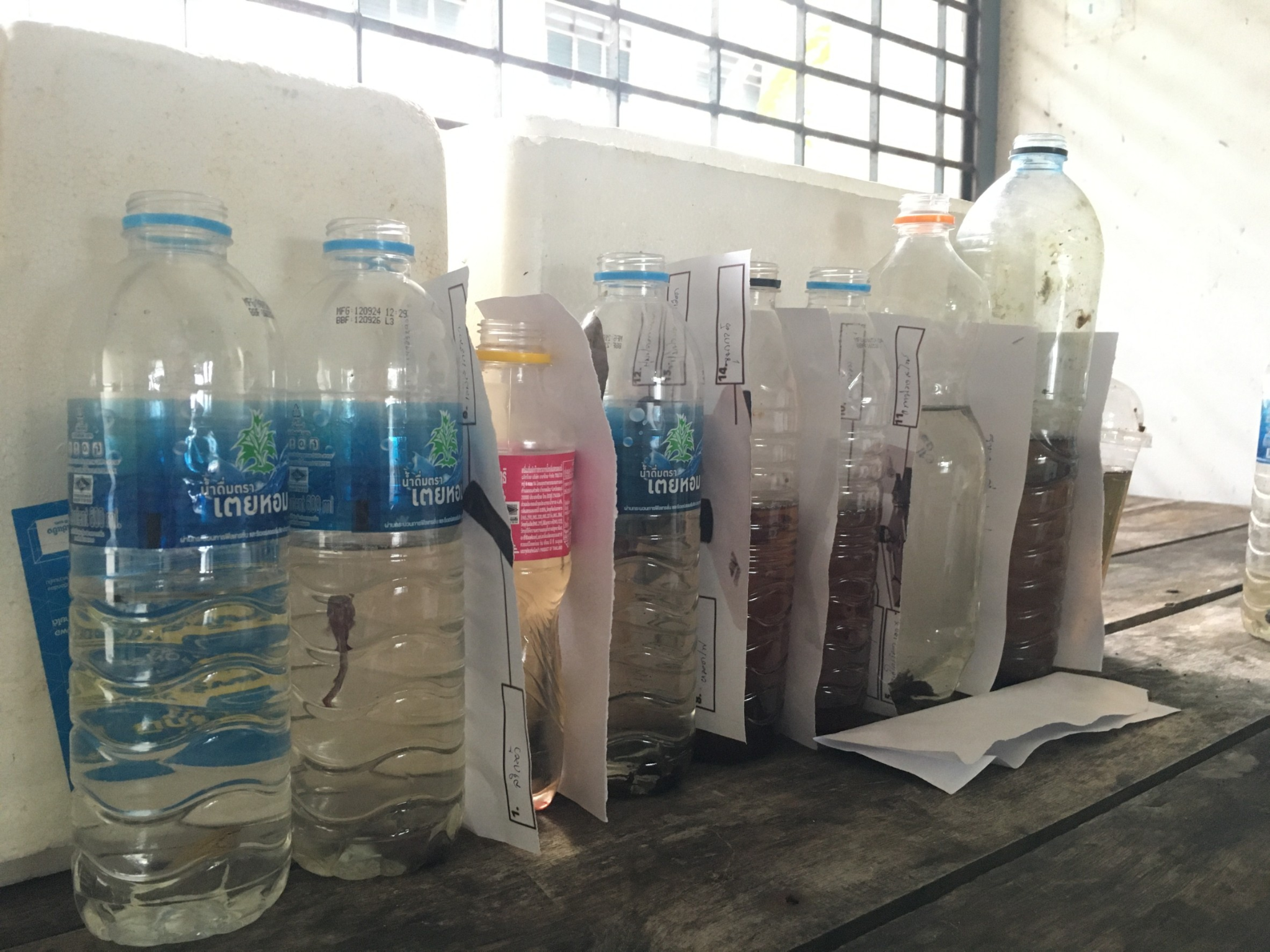 |
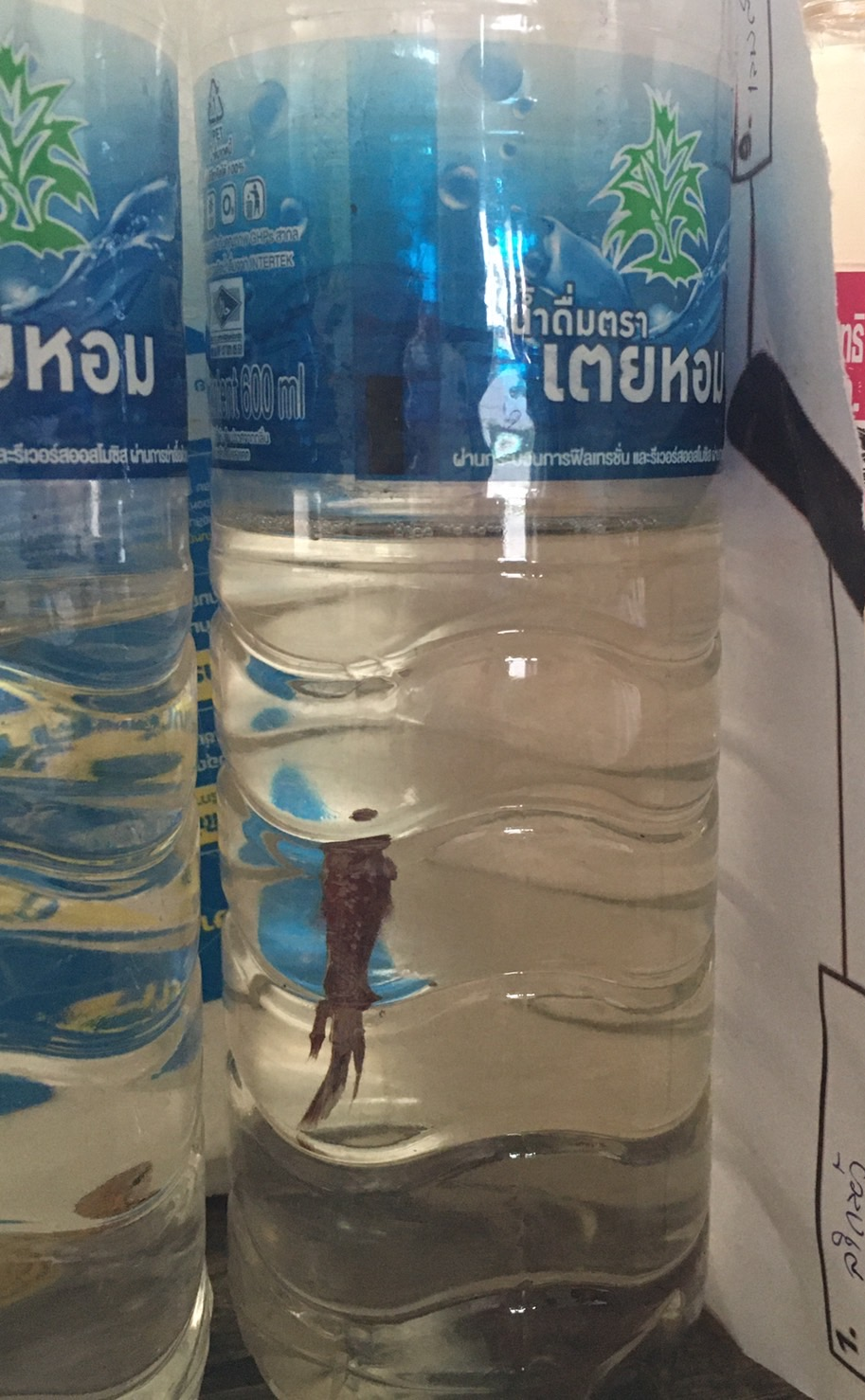 |

